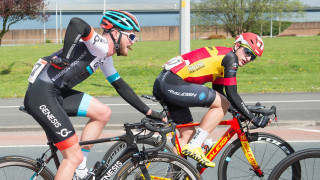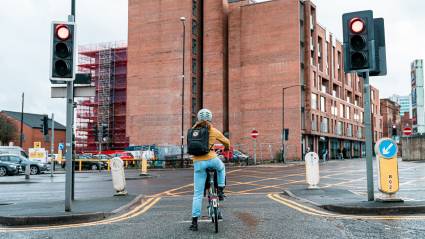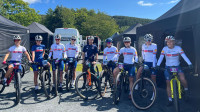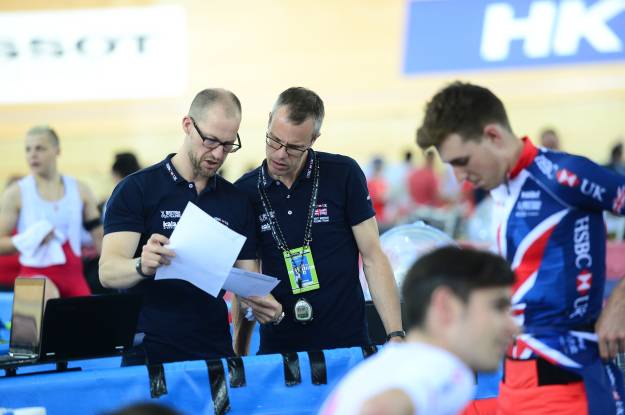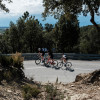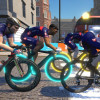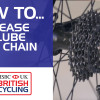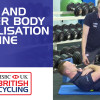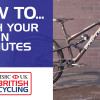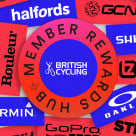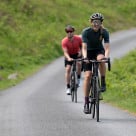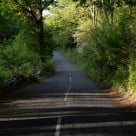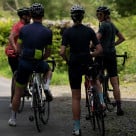Here are our top 10 common cycling nutrition mistakes to avoid.
1) Overdoing it the night before
Even if you are tackling an epic ride the next day, you don’t need to wade through huge bowls of pasta. Your body can only store a limited amount of carbohydrates and, assuming you have eaten normally and tapered into your event, a normal sized meal will be more than enough to top it up. Eat too much and you risk a poor night’s sleep and feeling bloated the next day.
2) Leaving breakfast too late
For a training ride or club run that you know will start fairly steadily, assuming you go for a fairly easily digestible breakfast such as porridge, you can probably get away with eating up to 60 minutes before setting off. However, for a sportive where you might want to start a bit more briskly or that goes straight into a climb, you should aim to allow 2-3 hours.
3) Trying something new on event day
Whether it is a new brand of gel given out at registration or even a different breakfast than usual, don’t do anything that you haven’t tested in training. You’re likely to be nervous and are going to be pushing your body hard so, don’t put any unnecessary additional strain on your digestive system.
4) Riding too hard
The number one reason for digestive distress on a sportive is riding too hard. Push on a bit too much and your digestive system will go into shutdown, making you feel bloated, nauseous and unable to take on and process any more fuel. Stick to the same riding intensities as you did in training and don’t expect a miraculous event day boost to your pace. As a rule of thumb; in Zones 1-2 you can eat and digest. In Zone 3 you will be on the digestive edge and may only find you can process gels and sports drink. Sustained periods at or above Zone 4 can cause digestive shutdown.
5) Too many gels
Gels are a fast-acting fuel and you should save them for when you really need them near the back end of a ride or as a boost before a tough climb. Too many gels can lead to an upset stomach and, if you are pacing a sportive correctly, you should be able to ride most of it on “real food” which will be easier on your stomach.
6) Waiting until you are hungry
Don’t wait to eat until you feel hungry on a long ride. By the time you get that sensation, your stomach will be empty and you will soon be running on fumes. It takes time from eating food for the energy to become available. Start taking on small snacks every 20-30 minutes right from the start of the ride. You are not eating for that moment but 30km down the road.
7) Not researching the route
If you are riding a hilly or mountainous sportive, you will probably be better off fuelling to the terrain rather than strictly to the clock. You won’t feel great if you eat a flapjack just before a steep climb. Try to take on “real food’ at the top of descents or on valley roads where you will be able to process it. If you have got a long climb, just before or even midway up could be the time to pop a gel. By researching the route, you will be able to plan your fuelling round its features.
8) Skipping a late feed
You have only got 10km to go, don’t fancy that final gel and decide to just press on to the finish. However, the organiser hasn’t quite got their distances right, you forgot about a nasty little final climb and then you get a puncture. Having fixed your flat, you limp home and that final “10km” takes you well over an hour. The moral of this story, no matter how close you think you are to the end of a ride, never miss a feed.
9) Not having a recovery drink
If you have completed a ride of over 90 minutes, or an especially intense shorter session, and won’t be eating a proper meal within the hour, a recovery drink is a good idea. Miss it and you will compromise your recovery and are likely to feel ravenous later on and risk a sugar binge.
10) Having a recovery drink
You don’t need a recovery drink after every ride though. Shorter rides of under 90 minutes probably don’t warrant one and having one is just unnecessary expense and calories.

